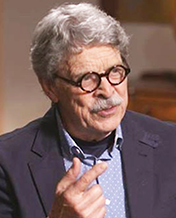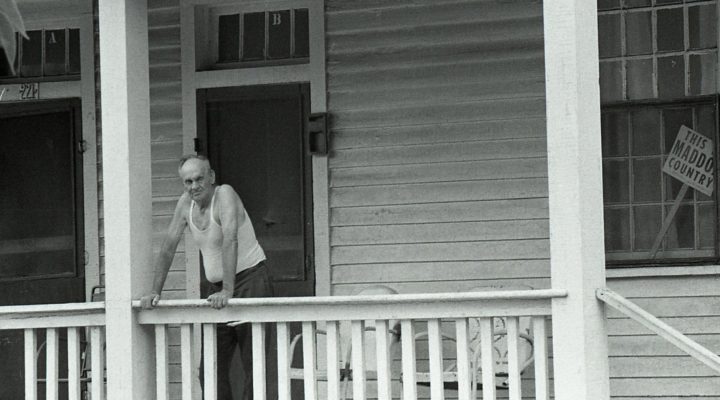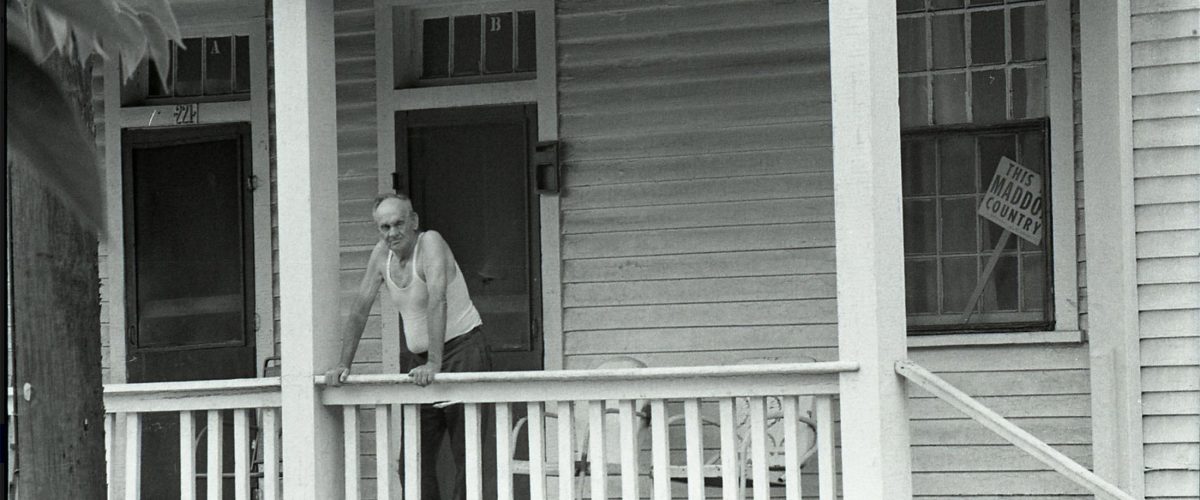I am a cultural anthropologist, and I was doing a study in Cabbagetown, a predominantly white, evangelical neighborhood of Atlanta, in the 1970s when I began to hear local pastors talking about taking America back for Jesus. They argued the Supreme Court outlawing segregation, prayer and Bible reading in the schools, combined with Civil Rights legislation and feminism, were all destroying the God-given country white people had built.
They were calling for a Christian government, a strong hand, to reverse those federal decisions they felt had eviscerated their Christian way of life. As a Baptist pastor was decrying the loss of Christian principles in this country, he called out in the middle of a sermon, “Hitler and Stalin did something.” Pastors and their church members were calling for political power to reinstate the intertwined dominance of race and Christianity that was their comfort zone.

Ron Duncan Hart
After that research, I was out of the country for decades and working as an anthropologist on issues of well-being and religion in South America and North Africa. After returning to this country, the Unite the Right rally in Charlottesville in 2017 brought me back to the reality that I had experienced in Cabbagetown in the 1970s.
I had lived with people as they told me their life stories, their fear of Black people, their conversions, being healed by God, their struggles between God and the devil. They were afraid Jews and Blacks would replace them, and they called for a strong Christian arm to back them up.
I realized what I had observed in Cabbagetown was the beginning of Christian nationalism at its roots. Implicit in their call to make America great again was the use of authoritarian means if necessary. It would be justified to achieve what they perceived as God’s will for America.
In Cabbagetown, I had observed the two faces of religion, one of spiritual quest and concern for others, and the other face of creed, intolerance and bigotry. Since then, I have seen those two faces of religion in Catholic South America, Muslim North Africa and other places.
The concern about the connection between religious belief and intolerance, leading to violence, gained attention after the attacks on the twin towers of the World Trade Center in 2001.
In 2007, I attended a conference at the Abdelmalek Essaâdi University in Tetuan, Morocco, and one evening my wife, daughter and I were having dinner with two local professors from the university, one a sociologist and the other a professor of Islamic literature. As we talked about tolerance in religion during dinner, the literature professor commented that tolerance was dangerous and unacceptable for Islam. He went on to argue that Muslims had to be intolerant of foreign influences that could contaminate the purity of Islam.
“Religion and intolerance often do correlate with each other, but does religion cause intolerance?”
His comments led me to think about the linkage of ideological purity and intolerance in religious systems, including Christianity. Religion and intolerance often do correlate with each other, but does religion cause intolerance?
The violent attacks on synagogues and Black churches in the United States would soon re-focus attention to white extremism in this country. I thought about the long history of intolerance in the name of purity in nationalism, racism or religion. We can see the oppression and eradication of the “other,” the impure, repeatedly in European history from the Crusades against “infidels” in the Holy Land in 1098 to the Inquisition burning Jews at the stake in Spain and Portugal in the 1500s, to the more recent history of lynchings in the United States and the state sponsored genocide that was the Holocaust.
And we need go no further than the beatings, bombings and killings against Blacks and Jews in the Civil Rights era. When Civil Rights marches were organized in Black Baptist churches, white Citizen’s councils were organized in white Baptist churches to stop them.
Remember that Southern Baptists did not call on their member churches and families to stop using the Confederate battle flag until 2015. The battle for Christian nationalism produced a unitary belief system in which the pluralism of democracy became a threat, and Christian authoritarianism would be the only way to guarantee the dominance of Christian values in society even if it required the old alliance with autocracy.
Christian nationalism went mainstream with Ronald Reagan, who was elected president with significant evangelical help in 1980. He promised “a great national crusade to make America great again.”
He made it a key slogan in his presidential campaign. Reagan built the evangelical political coalition based on a message of America as a light on the hill for democracy. He forged an alliance that elected four of the next six presidents of the country.
Since my study of religion and politics in Cabbagetown in the 1970s, evangelicals have been a major influence in bringing America to where it is today with a mixture of religion and politics. The call to arms to retake America for Christianity that I observed in Cabbagetown so many years ago is the acorn that grew into an oak tree.
Claude, an articulate mill worker in Cabbagetown, called for taking America back to the Christian land where he grew up with white people as the “backbone of the nation,” as he said. Claude did not distinguish between “white” and “Christian.”
I often wonder what his children and grandchildren would be saying today.
Ron Duncan Hart is a cultural anthropologist from Indiana University with postdoctoral work at the University of Oxford on Jewish Studies. He is a former university vice president and dean of Academic Affairs at InterAmerican University. In addition to being a Fulbright Senior Scholar, he has received awards for his work from the Ford Foundation, National Endowment for the Humanities and the National Science Foundation. He has written eight books, five of which have won best book awards or been finalists. He currently serves as director of the Institute for Tolerance Studies and his latest book is Evangelicals and MAGA: The Politics of Grievance a Half Century in the Making.


